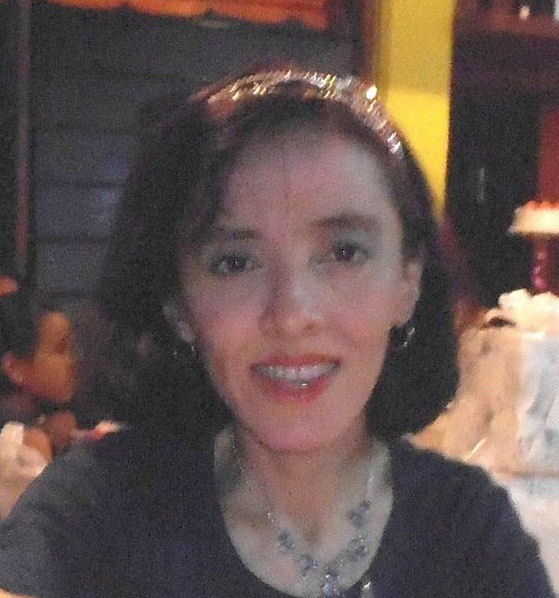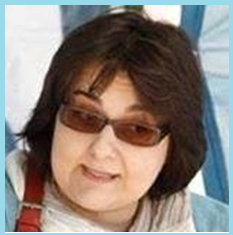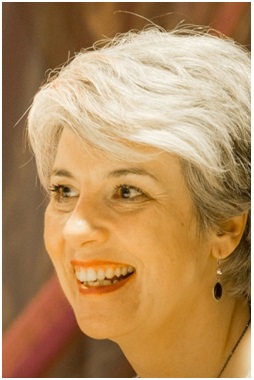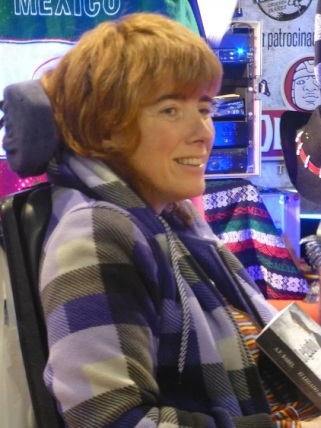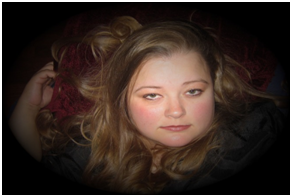Health
Authors on Friedreich’s Ataxia – Claudia Parada Ramos
by Michell Spoden
Translated by Ester Romero Smith
This interview is part of literacy project with Authors on Friedreich’s Ataxia series, and my interviewee today is 38-year- old Claudia Parada Ramos from Mexico.
Michell: Claudia, please tell our readers a little about you.
Claudia: I studied Biochemical Engineering. Currently I don’t have a paid job, but I always have things to do. Sometimes I teach math; sometimes I write; sometimes I just do small common household chores; and sometimes I simply live without getting down.
Michell: Please let our viewers know about this recent project and how you decided to join it?
Claudia: Personally, I thought that this project was a magnificent work with extremely important goals to seek significant positive results.
One of our primary aims of this project, with its sales, is to raise funds for scientific research to find a cure for Friedreich’s Ataxia, or that helps to stop the progression.
Yes, and why not, as a tool to provide information about Friedreich’s Ataxia—share knowledge in a fun way that captures the emotions and the attention of people, raising awareness on this matter.
I decided to participate in this project because it was a noble proposal and because, when it is possible, I like working with most of the calls being proposed or presented under the framework of BabelFAmily and that support Friedreich’s Ataxia
Michell: There is something common among of the writers for this project. What is it?
Claudia: Most of the authors of this literary project suffer from FA or have a close family connection or friendship with someone that has it. Friedreich’s Ataxia is a neurological disease, neuromuscular, genetic, hereditary, progressive, highly disabling, which so far has no cure. It is a neurological syndrome that presents a wide range of symptoms, but not all patients have all of symptoms following the same pattern, or even the same symptom at the same level as another may have.
It is called a “rare disease” or of low prevalence. A cure somewhere? Until now there is no cure but research is ongoing to find it. There are or have been several biomedical attempts to find a medication, but up to now, there is only some relief of some symptoms and possible maintenance. To date, it is hoped to find that desired cure through gene therapy, and therefore the importance of raising funds for medical research.
Michell: Your group has decided to translate this book into different languages. Please tell us more about thist aspect of the project.
Claudia: We have the fantastic representation and support from BabelFAmily Association, which has a great team of translators who carry out their translation work as volunteers.
Friedreich’s Ataxia is a disease existing in countries around the world with different languages. One of the goals that is characteristic of BabelFAmily is its multilingual mission. Ataxia has neither languages nor borders.
Michell: Do you think this project will lead to other extraordinary events in the future?
Claudia: I think so and I hope so too
Michell: Outside of raising money for the book, what other humanitarian efforts have those from the group participated in?
Claudia: So far, in Mexico there is no ataxia associations. For that reason, several years ago, I set up a cyber forum to support ataxia groups in my country, with the aim of sharing and exchanging information related to the disease, encouraging the creation of friendly ties among people with ataxia from the same country. They know that contrary to what some doctors or people say, in Mexico, there is a small but representative group of the population that suffers from Friedreich’s Ataxia or another ataxia. This is not just in Europe and other countries.
Due to networks changes, the cyber tools evolve, are updated and the group continues working now on Facebook under the name of “Ataxias Latinoamerica” and on the same internet site “Ataxias en Mexico”. I am also a team member of BabelFAmily International Association since its beginning
Michell: Since all of you struggle with the same disease, what are the greatest challenges with having it? Is there anything that you would like to share with us that could help us to better understand what we outsiders can do to make a difference?
Claudia: Friedreich’s ataxia is a progressive disease, filled with different symptoms, therefore it is tough to define what is the greater or lesser challenge because there are always changes, each change is a challenge which, not being known and experienced, can be the greatest at the time.
I have been living with Friedreich’s ataxia for 26 years, a long road with many challenges (unsteady walking, surgeries, canes, wheelchairs, braces, etc.). By now I am using oxygen because of neuromuscular hypoxemia, one of the pathophysiological problems that may occur in neurological and muscular diseases.
Although I have lived through many different challenges, I could not tell which was the greatest because even so I had and still have lived good and very pleasant days. I would like to invite others to purchase the book to help the cause so Friedreich’s Ataxia will one day be just history, history that will have a solution and will be told in a book of old fashioned histories.
My invitation is also extended to overcome the ignorance and lack of information, and contribute to human rights for a world with higher social inclusion.
Michell: What were some of the barriers you ran into during the project? How did you solve the issues?
Claudia: Barriers? Well, I have read that a few of my colleagues have said the distance, language, viewpoints, agreements etc. but I haven’t or maybe I have, but I didn’t notice many because I was facing other personal and material barriers which made my work harder. Having a computer was essential to do the work but in those days a hurricane struck the city where I lived, leaving me without electricity for several months. Another issue was that the computer broke down and I was without it several months until I bought a new one.
Michell: Did any of you feel you had learned some major lessons? If so what were they?
Claudia: Yes of course. I could learn, discover, and experiment in different areas, about me and about a large part of the literary world that was unknown to me. I could also develop greater tenacity and commitment.
Michell: What are some of your favorite authors?
Claudia: There are so many authors I have liked without becoming my favorites and other writers that without fame caught my attention and my heart (my friend Vicente R.I.P.) therefore I’d rather not mention any one specifically and I tend to mention as my favorite the universal classics: William Shakespeare, Tolstoy, Emily Bronte, Hemingway, Gustavo A. Becquer, etc.
Read María Blasco Gamarra’s Interview about international literacy project against Friedreich’s Ataxia.

